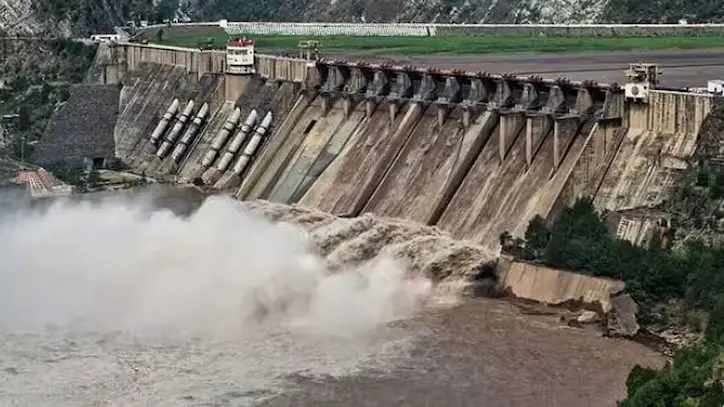
India’s decision to halt water flow through the Baglihar Dam has triggered a diplomatic standoff with Pakistan
Agricultural Crisis in Pakistan – India’s strategic water management decision to halt water flow through the Baglihar Dam has sent shockwaves through Pakistan’s agriculture and energy sectors. The move follows the suspension of the Indus Waters Treaty, a decades-old agreement governing water-sharing between the two nations. With Pakistan heavily reliant on the Indus River system, this development has sparked concerns over food security, irrigation, and geopolitical stability.
Why Did India Halt Water Flow?
India’s decision comes in response to recent terror attacks in Jammu and Kashmir, allegedly backed by Pakistan-based militant groups. The Indian government has put the Indus Waters Treaty in abeyance, signaling that water resources will no longer be freely accessible to Pakistan.
- The Baglihar Dam, located in Jammu’s Ramban district, plays a crucial role in regulating Chenab River water flow.
- India has also hinted at similar restrictions on the Kishanganga Dam, which controls Jhelum River water.
- The move is seen as a strategic countermeasure against Pakistan’s continued support for cross-border terrorism.
Impact on Pakistan’s Water Supply-Agricultural Crisis in Pakistan
Pakistan’s agriculture and irrigation systems are heavily dependent on Indus River tributaries. With India restricting water flow, Pakistan faces:
- Severe water shortages, affecting crop production in Punjab and Sindh.
- Reduced hydroelectric power generation, leading to energy crises.
- Economic instability, as water scarcity threatens food security and industrial output.
India’s Strategic Water Diplomacy
India has long maintained that its hydroelectric projects comply with the Indus Waters Treaty. However, recent developments indicate a more assertive approach:
- Baglihar and Kishanganga dams allow India to regulate water releases, impacting Pakistan’s access.
- India’s growing self-reliance in water management strengthens its geopolitical leverage.
- International observers are closely monitoring the situation, with concerns over regional stability.
Pakistan’s Response and Diplomatic Fallout
Pakistan has raised objections at international forums, accusing India of violating water-sharing agreements.
- Islamabad has approached the World Bank, seeking intervention.
- China and Turkey have expressed concerns over India’s unilateral actions.
- Pakistan’s internal water crisis is worsening, with reservoir levels dropping.
Conclusion
India’s halt on Baglihar Dam water flow is more than a hydrological decision, it’s a geopolitical statement. As tensions rise, the future of the Indus Waters Treaty remains uncertain. While India asserts its right to regulate water resources, Pakistan faces severe consequences. The coming months will determine whether diplomatic negotiations can prevent further escalation.
1 thought on “Agricultural Crisis in Pakistan – India Water Strategy: Baglihar Dam Halt Sparks Diplomatic Standoff”